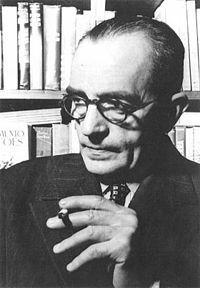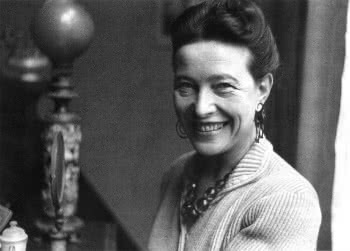Graciliano Ramos (1892-1953) was a Brazilian writer and journalist belonging to second phase of modernism, called the consolidation phase (1930-1945).
According to him:
“Brazilian modernists, confusing the country's literary environment with the Academy, drew rigid (but arbitrary) dividing lines between good and bad. And, wanting to destroy everything that was left behind, they condemned, out of ignorance or shamelessness, much that deserved to be saved.”
Biography

Son of Sebastião Ramos de Oliveira and Maria Amélia Ferro Ramos, Graciliano Ramos de Oliveira was born in the municipality of Quebrângulo, in Alagoas, on October 27, 1892. A middle-class family, Graciliano was the eldest of 16 children.
He lived in several cities in northeastern Brazil: Viçosa (AL), Palmeira dos Índios (AL), Maceió (AL) and Buíque (PE).
She had a difficult childhood marked by difficulties in the relationship with her parents, who were quite rigid and cold.
He studied at the boarding school in Viçosa and, in 1904, published in the school newspaper “The Dilucle” his first work: the short story “the little beggar”.
The following year, he went to live in Maceió where he enrolled at Colégio Interno Quinze de Março. There, he establishes an identification relationship with language and literature.
When he finished high school in 1914, he went to Rio de Janeiro. In the marvelous city he worked as a proofreader for the newspapers “Correio da Manhã”, “O Século” and “A Tarde”.
The following year, he married Maria Augusta Barros who died a short time later. With her he had four children.
He also had a political career, being elected mayor of the city of Palmeira dos Índios in 1928, a position he held until 1930.
From 1930 onwards, he took over the direction of the Official Press and of the State Public Instruction in Maceió. In 1936, he married Heloísa Leite de Medeiros, with whom he had four children: Ricardo, Roberto, Clara and Luísa.
He was affiliated with the communist party and was arrested on charges. Despite having a very acidic personality, the writer himself emphasized:
“Anywhere, I'm fine. I did well in jail. I even miss the Correctional Colony. I left there good friends.”
Graciliano died in Rio de Janeiro, on March 20, 1953, victim of lung cancer.
Construction
Graciliano wrote novels, short stories, chronicles, children's literature and according to him:
“Any romance is social. Even the 'ivory tower' literature is social work, because the mere fact of seeking to remove other problems is social struggle”.
Some works that stood out:
- Caetés (1933)
- Dry Lives (1938)
- Saint Bernard (1934)
- Anguish (1936)
- The Land of Naked Boys (1939)
- Brandão Between the Sea and Love (1942)
- Alexander's Stories (1944)
- Childhood (1945)
- Incomplete Stories (1946)
- Insomnia (1947)
Some of his works that were published posthumously:
- Memoirs of Prison (1953)
- Travel (1954)
- Crooked Lines (1962)
- Living in Alagoas (1962)
- Alexandre and Other Heroes (1962)
- Letters (1980)
- The Silver Stirrup (1984)
- Letters to Heloisa (1992)
Dried lives
Published in 1938, the documentary novel “Dried lives“It's his most emblematic work. In it, Graciliano portrays the life of a family of retreatants with their dog and parrot.
In this novel, the writer traces the figure of the sertanejo, exploring themes such as poverty and drought in the northeast.
Graciliano's Phrases
- “I could never get out of myself. I can only write what I am. And if the characters behave in different ways, it's because I'm not one.”
- “The word was not meant to beautify, to shine like fake gold. The word was made to say.”
- “Whoever writes must be very careful not to let it get wet. The page that was written should not drip any words, except unnecessary ones. It's like a washed cloth that stretches on the clothesline.”
- “I am excessively moved, by nature and by trade. I think it's awful for someone to live without passions.”
- “Certain places that gave me pleasure became hateful. I pass a bookstore, look with disgust at the shop windows, I have the impression that there are people there, displaying titles and prices in their faces, selling themselves. It's a kind of prostitution.”
- “Choosing a husband for money. What misery! There is no worse kind of prostitution.”
- “Atheist! Is not true. I've spent my life creating gods that die soon, idols that I later tear down. A star in the sky, some women on earth.”
Curiosities
- Graciliano did not go to college.
- Some of his works were adapted for cinema, such as Vidas Secas, São Bernardo and Memórias do Cárcere.
- In the publication of your work "Anguish”(1936), Graciliano was imprisoned, so the original was delivered by Heloísa, his wife, to the editor José Olympio responsible for the publication.
Read too:
- Modernism in Brazil
- Modernism in Brazil: characteristics and historical context
- The Language of Modernism
- Second Generation Modernist
- Authors of the Second Phase of Modernism in Brazil
- Modern and Contemporary Brazilian Poets



